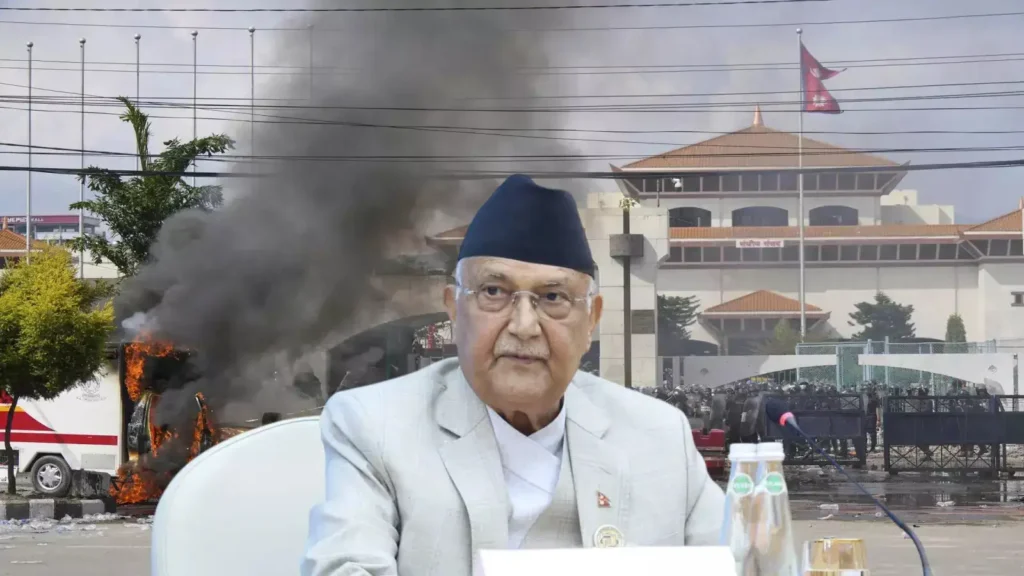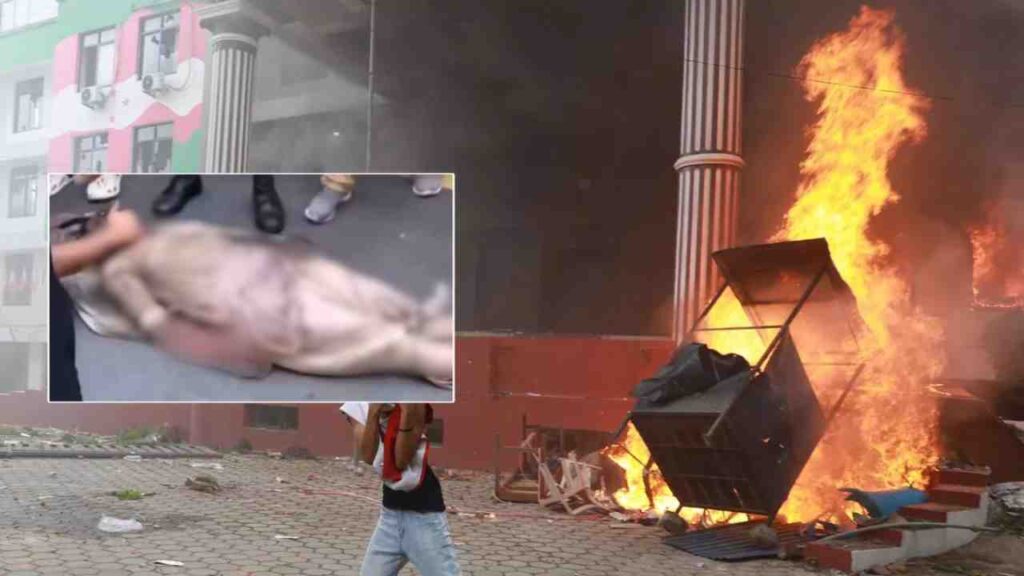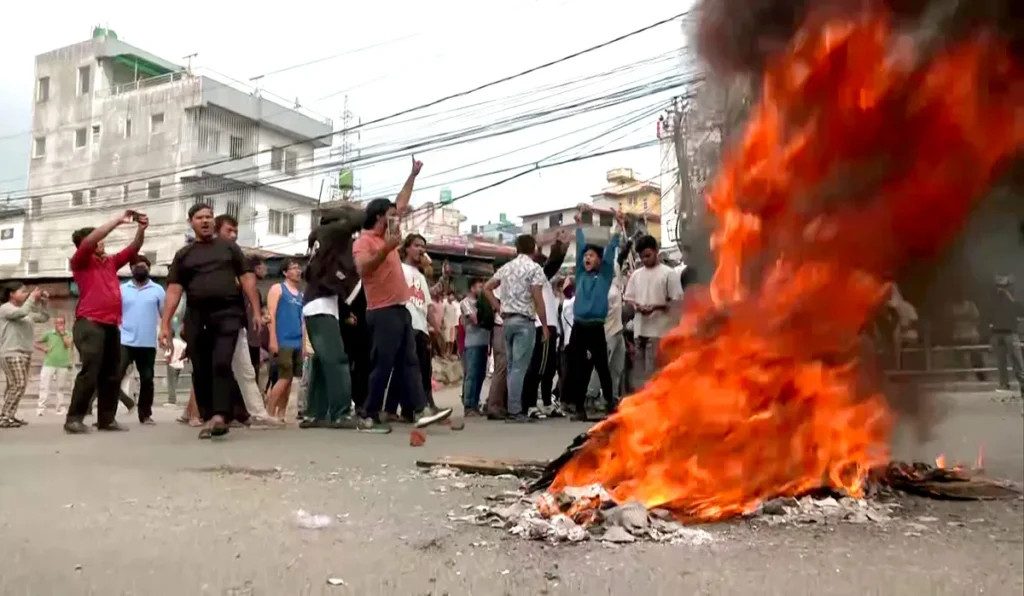Kathmandu, Nepal – September 10, 2025
In a devastating turn of events, Rajyalaxmi Chitrakar, the wife of former Nepali Prime Minister Jhalanath Khanal, succumbed to severe burn injuries after Gen Z-led protesters set their residence ablaze in Kathmandu’s Dallu area on Tuesday, September 9, 2025. The incident, reported by local outlet Khabarhub and corroborated by multiple sources, has sent shockwaves through Nepal, highlighting the escalating violence of nationwide protests sparked by a controversial social media ban and widespread discontent over corruption and governance.
The tragic event unfolded as Nepal grappled with a second day of violent demonstrations, primarily driven by the country’s youth, who have been labeled the “Gen Z movement.” According to family sources, protesters trapped Chitrakar inside the Khanal family home before setting it on fire. She was rushed to Kirtipur Burn Hospital in critical condition but succumbed to her injuries during treatment. Former Prime Minister Khanal, a senior leader of the CPN (Unified Socialist) party, was rescued by the Nepali Army moments before the blaze engulfed the residence.

The protests, which began on September 8, 2025, were initially triggered by the government’s sudden ban on 26 major social media platforms, including Facebook, Instagram, WhatsApp, and YouTube, citing tax and cybersecurity concerns. However, the demonstrations quickly escalated into broader outrage against systemic corruption, unemployment, and political elitism. The government’s decision to lift the social media ban on Tuesday did little to quell the unrest, as protesters intensified their demands for systemic change, targeting government buildings, political party offices, and residences of prominent leaders.
The violence has claimed at least 22 lives, including Chitrakar’s, with over 500 injuries reported across Kathmandu and other cities like Pokhara, Butwal, and Birgunj. Significant landmarks, including the Singh Durbar administrative complex, the presidential residence Sheetal Niwas, and the Nepali Parliament, have been set ablaze or vandalized. The private homes of President Ram Chandra Paudel, Prime Minister KP Sharma Oli, and other former leaders like Pushpa Kamal Dahal and Sher Bahadur Deuba have also been targeted.

Prime Minister KP Sharma Oli resigned on Tuesday amid the chaos, with his own residence in Balkot set on fire. In a statement, Oli expressed sorrow over the loss of lives and called for dialogue to resolve the crisis. President Paudel, despite earlier reports of his resignation, remains in office and has urged protesters to pursue peaceful resolutions.
The Nepali Army, while expressing condolences, has called for calm and warned against further destruction, as curfews and heightened security measures remain in place around key government sites.
The international community has voiced concern over the spiraling unrest. India’s Prime Minister Narendra Modi and UN High Commissioner for Human Rights Volker Türk have called for restraint and dialogue, while flight operations at Kathmandu’s Tribhuvan International Airport have been partially suspended due to the volatile situation.
Chitrakar’s death underscores the deepening political crisis in Nepal, where the Gen Z movement’s demands for accountability and reform have taken a violent turn. As the nation mourns, questions linger about the path forward and whether dialogue can restore peace in a country shaken by grief and unrest.

Technocrat Magazine will continue to monitor this developing story and provide updates on Nepal’s political crisis and its implications for the region.

Comments